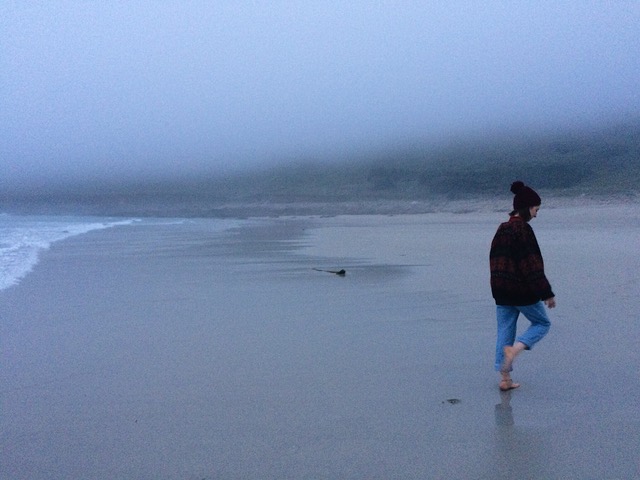Blowout Tide
/By Joe Labriola:
You shift across the pebble-pocked sand, scouring the pale flaxen dunes for all manner of seaside treasures. Pink spiral shells and sand-smoothed stones are among your favorites, peeking out from the wild patchwork. But among these beautiful bits of beachside bounty, more than all else, you find trash.
You’ve noticed more in recent years. More and more. Harder and harder to ignore. Bleached water bottles and frayed strings sit tangled within the tidal muck. White bags hiss upon the tips of inland reeds, rippling in the cold March wind as if waving, as if wavering, as if breathing their surrender.
You aren’t a vagabond can collector or a hipster hobbyist. But you see. You see candy wrappers and drink caps. Glints of plastic waste simmer in the sunlit brine. You can’t say why you do it. You can’t say how much it helps. All you can say is that it just sort of feels like the right thing to do: picking it up, one piece at a time.
You and your four-legged companion work hard. Harder every time. You are the only two who seem to care, even as the ocean vomits more trash each weekend, seemingly to replace whatever you’ve filled your big black bag with, and then some.
“We just gotta keep at it, boy,” you say, struggling to maintain your balance upon a steep tuft as you pluck battered sandals and cracked milk jugs out of the weeds. “We’re doing good work.”
Your dog just sniffs and stares.
You continue this way for months. Years. You never venture beyond your route from the parking lot to the pier. There’s always plenty to clean right here. Always more and more.
But one day your old dog pants and wheezes. He sighs and slumps. The vet says he doesn’t have long. Maybe days. Maybe weeks. But not long. You know the truth but don’t want to believe it.
“It would be for the best if we put him down,” the vet tells you plainly.
“Not yet,” you strain to say back. “Not just yet.”
The next morning you take your old friend for one final stroll. It’s breezy, breezier than usual. But that’s never stopped you before. It’s slowed you, yes, but never stopped. You follow your usual path. Of course you don’t come close to getting it all. You never do. But you needn’t go far. You still fill your bags, and that seems to count for something.
“Biggest haul yet, boy!” you say through a gust, loading your garbage and recyclables into the trunk.
The old dog gazes back at you with big, shadowed eyes. He tugs on his leash. A weak motion but with conviction all the same. Maybe he knows?
You glance up toward the opposite direction where you’ve never ventured on your weekly cleaning treks. But why not? Why haven’t you ever gone that way? Because you like your way? Because you’re just used to it?
You don’t know such answers. But you smile tiredly and grab one more bag from the car.
You trudge down the beach together into the cutting wind. There’s even more trash this way. Much more. “Won’t get it all today, boy,” you call down to your friend. You continue, smiling as best as you can.
You stop after you reach a sharp bend along the dunes. You almost turn around here where the wind is strongest, rippling your loose shirt. But then you notice a small brushy clearing atop a stout cliff not far in the distance. Perched upon its edge are a group of teenagers: five or six scraggly-haired youths. They lounge in various positions, surrounded by beer cans and take-out food containers. Some of the debris has already trickled down the crumbling wall of hard-packed sand. You watch for a while. One kid hurls a sack of fast food remnants out into the water. Another chucks a half-empty beer at his friend, who dodges and shoves his friend back playfully.
They all laugh freely.
You open your dry mouth to cry out. But the warm wind sucks at your breath. You stare for another moment, and then finally just plop down in the sand, watching the trash-ridden tide rise closer.
“That’s enough, boy,” you say, scratching your old dog’s ear. “That’s enough.”
***
Joe Labriola is an author, podcaster, and professor of Writing and Rhetoric at Stony Brook University in New York. His short fiction usually features some speculative or environmental lens with the goal of helping to raise awareness about ocean plastic pollution. He regularly hosts beach clean up events, presents lectures, and tries to spread awareness however he can. You can most often find him scouring his local shores filming his detrashing experiences—and enjoying a swim once the water is cleaned.







